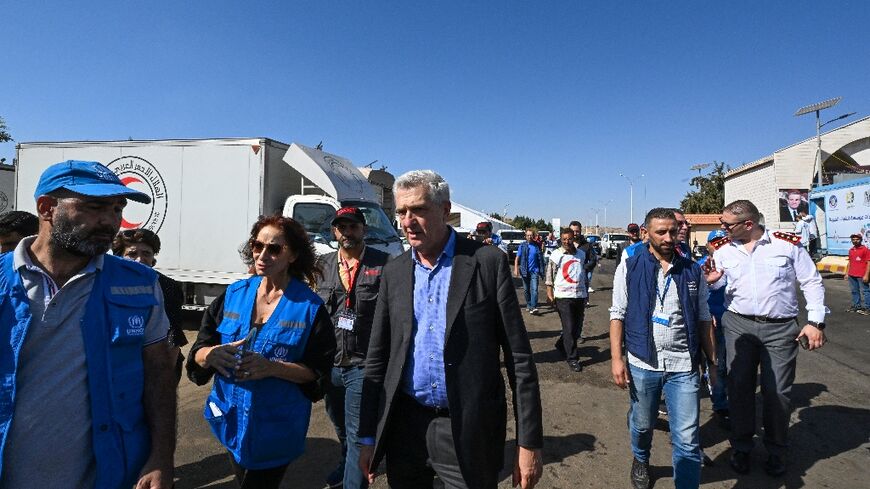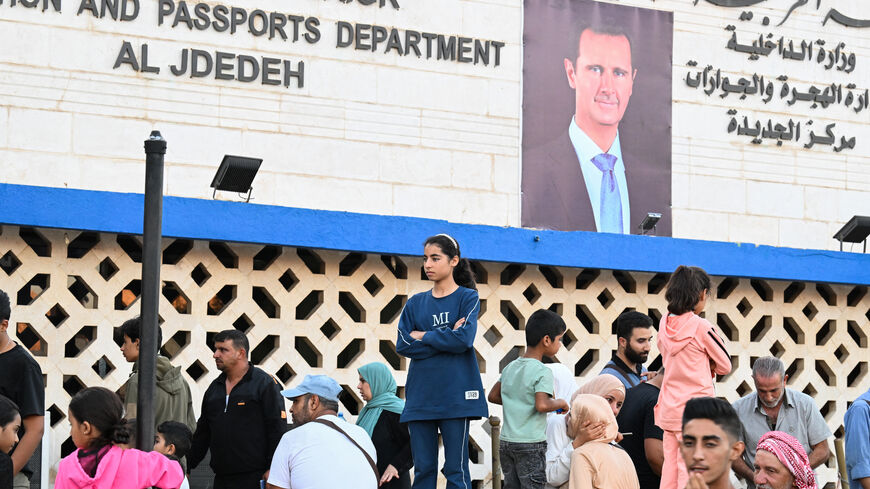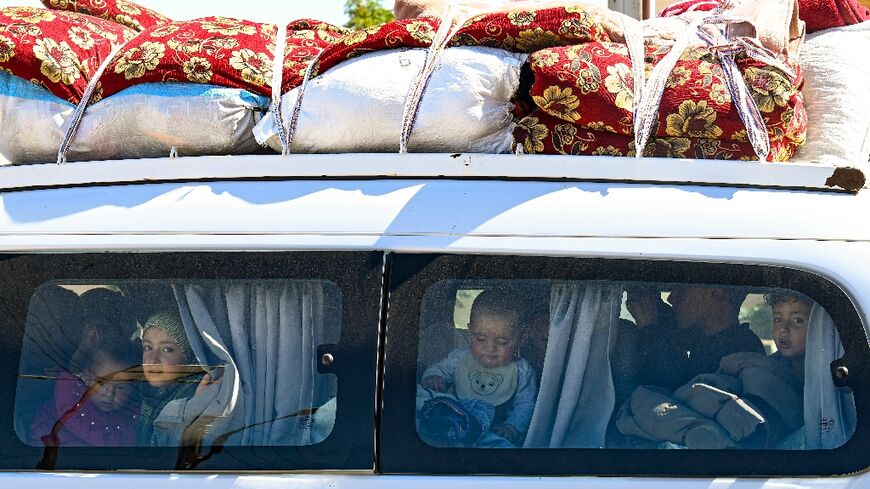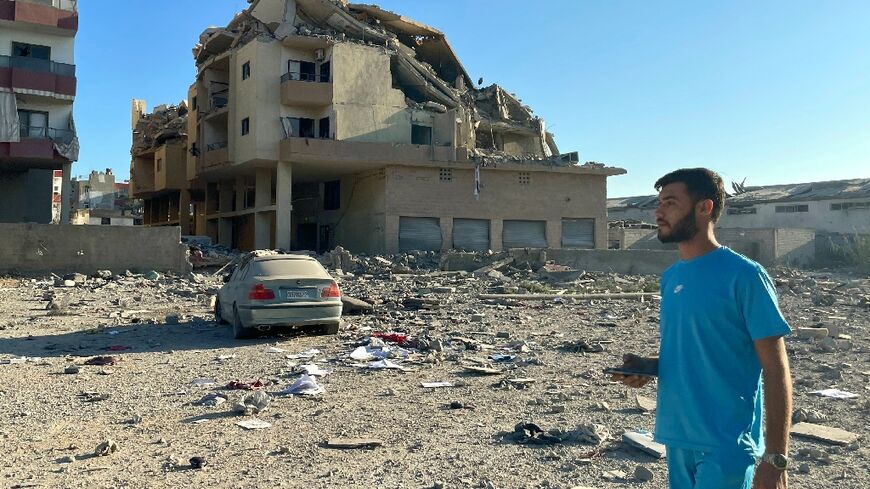Israeli bombing sends people fleeing Lebanon to war-ravaged Syria
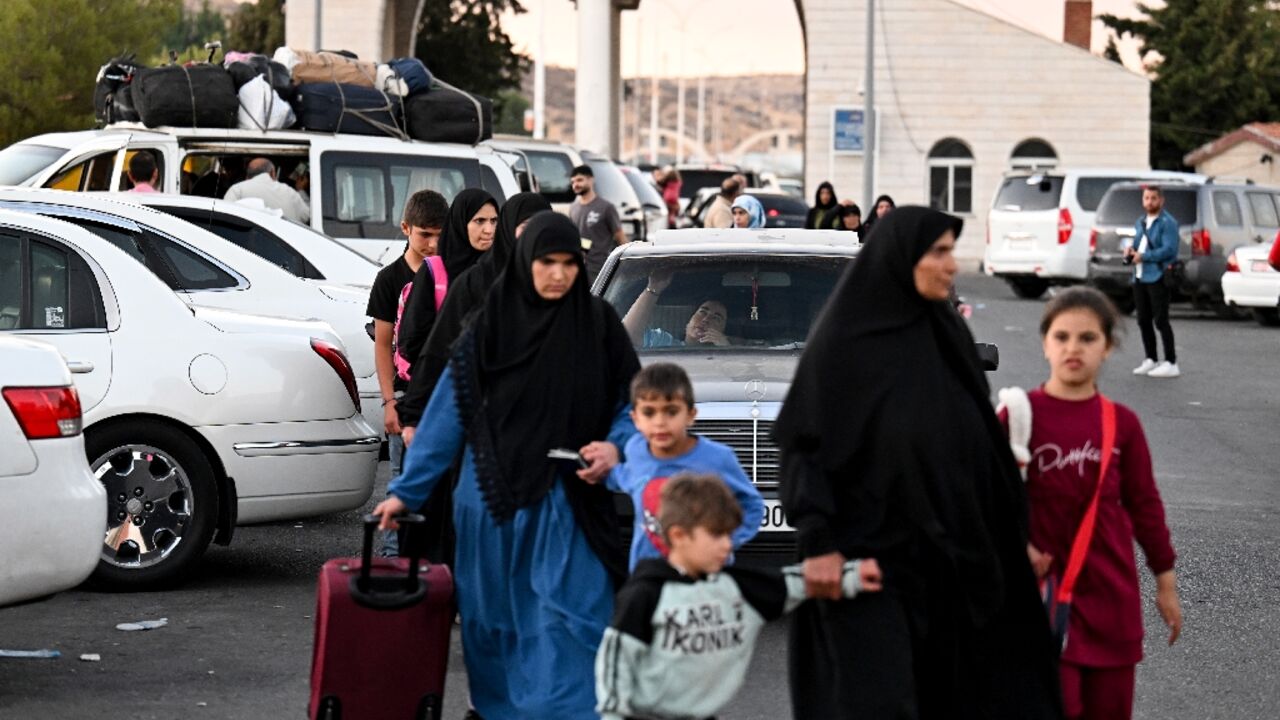
Lebanese man Hassan Slim had avoided Syria for years as war raged in the neighbouring country, but has now found himself fleeing there as Israeli strikes pounded Lebanon's south.
Slim, 24, was waiting on Wednesday with his elderly mother for their papers to be processed on the Syrian side of a border crossing, after a dramatic escalation this week of nearly 12 months of cross-border clashes between Lebanon's Hezbollah and Israeli forces.
"We were avoiding Syria because of the war, but now war is at our doorstep and we have to flee," said Slim, from south Lebanon, who has not visited since civil conflict erupted there in 2011.
"I don't know how long I'll stay in Syria, I'm afraid of this leap in the dark."
"We have family in Aleppo who invited us... but we didn't think the situation would degenerate so quickly," he said.
Nearly a year of clashes had already sent tens of thousands of people fleeing for their lives, many from the southern border area and the eastern Bekaa valley.
As the violence rapidly escalated in recent days, more have fled. With Lebanon otherwise surrounded by Israel and the Mediterranean Sea, crossing into Syria is the only option available for leaving by land.
Lebanese authorities said Thursday that over the past two days, they had "recorded the crossing of 15,600 Syrian citizens and 16,130 Lebanese citizens into Syrian territory".
Syria security sources told AFP that more than 22,000 people including more than 7,000 Lebanese had crossed from Lebanon into Syria this week via just two border crossings.
Sitting on the footpath or waiting in cars packed with bags, women and children waited for men to take care of the paperwork at the Jdeidet Yabus border crossing.
The main crossing between the two countries, known as Masnaa on the Lebanese side, is located on the Beirut-Damascus road in Lebanon's Bekaa valley, an area Israel has been pounding with air strikes.
- 'At the mercy of war' -
Volunteers from the Syrian Red Crescent handed out water and other items to those arriving, an AFP photographer said.
Lebanese trader Ali Mohammed Ghosn, 54, among those waiting with his family, said he usually travelled to Damascus for business.
"I would never have through I'd come for this," said Ghosn, who plans to stay with relatives in the Syrian capital.
"We won't be in Syria long. We'll return after our victory over Israel," he said.
When Israel and Hezbollah fought a month-long war in 2006, Ghosn said he spent nearly a week in Syria, but this time, "the bombing is much stronger".
According to UN figures, an estimated 250,000 Lebanese fled to Syria during the 2006 war, with about 70,000 of them heading to third countries.
Now, authorities have prepared three shelters and opened several hotels for arrivals in the Sayyida Zeinab area south of the Syrian capital, home to an important Shiite Muslim shrine that is protected by pro-Iran groups, including Hezbollah.
This week, President Bashar al-Assad told a meeting of his new government that "the main issue, before all others, is to know how to stand beside our Lebanese brothers".
Hezbollah since 2013 has openly backed Assad's forces in his country's civil war.
Lebanon says it hosts some two million Syrian refugees, more than 774,000 of them registered with the United Nations.
Among those making the reverse journey was Syrian Abu Mohammed Rifai, who fled to Lebanon in 2014 from Daraa, the cradle of the country's uprising.
"I thought I wouldn't hear the sound of bombardments and missiles" in Lebanon, said Rifai, in his 60s.
"We are destined to live our whole lives at the mercy of war," he said.
"War has no pity."
